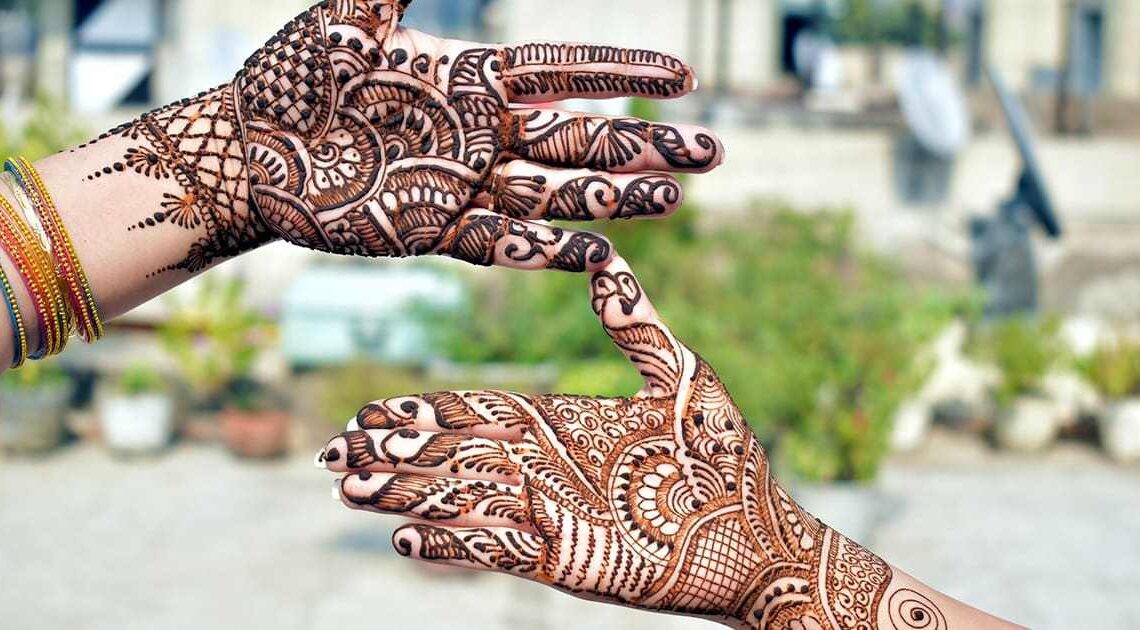
Front Full Hand Mehndi Designs are popular for various occasions, especially weddings, festivals, and special events. These designs typically cover the palm and extend to the back of the hand and fingers. Easy designs are simpler, less intricate, and quicker to apply, making them suitable for beginners or those short on time.
Front Full Hand Mehndi Design Easy focus on larger elements and more open spaces, making them quicker to apply and less prone to smudging. They’re ideal for those new to mehndi application or for casual occasions where elaborate designs aren’t necessary.
Beginners might start with basic patterns like simple flowers, leaves, or swirls, gradually building complexity as their skills improve. The versatility of mehndi allows for personalization, with designs ranging from delicate and lacy to bold and striking. Many artists draw inspiration from nature, cultural symbols, or contemporary art, creating unique fusion styles. Whether opting for a classic bridal look or a more casual, everyday design, front full hand mehndi can be adapted to suit any occasion, making it a timeless and cherished form of body art.
Popular Front Full Hand Mehndi Design Easy Include:
Floral:
Flowers, leaves, and vines
Mandala:
Circular patterns with symmetrical designs
Arabic:
Flowing patterns with large floral motifs
Paisley:
Teardrop-shaped patterns
Geometric:
Simple shapes and lines
Bracelet:
Wrist-focused designs that extend to the hand
Minimal:
Sparse, delicate patterns with lots of negative space
Tikki:
Dot-based patterns
Lace:
Delicate, net-like patterns
Tribal:
Bold, angular patterns inspired by traditional art
These designs often incorporate elements like:
– Simple flower shapes
– Basic leaf patterns
– Swirls and curves
– Dotwork
– Lattice patterns
– Checker designs
– Heart shapes
– Peacock motifs (simplified)
– Basic butterfly outlines
Conclusion
These designs can be mixed and matched or simplified further to create unique, easy-to-apply mehndi patterns. Remember, the key to easy front full hand mehndi designs is to keep the elements larger and less intricate, with more space between design elements. This approach not only makes the application process easier but also allows for quicker drying and typically results in a bolder, more visible pattern once the henna has fully developed.
